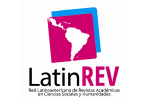The Independence of the Kingdom of Quito
DOI:
https://doi.org/10.18537/puc.22.12Keywords:
Reino de Quito, independencia, república, naciónAbstract
This article advances a new interpretation of the process of independence in Ecuador, which began in 1808 and concluded in 1822. It demonstrates that the Quito revolution of 1809 was not an anticolonial movement. Like the Juntas in the Peninsula and the rest of America formed after Napoleon’s invasion of the Iberian Peninsula, Quito sought to safeguard the Spanish Monarchy from the “godless” French. The independence of the Kingdom Quito and the formation of the republic of Ecuador occurred within the context of the revolution of the Hispanic world and the dissolution of the Spanish Monarchy. This study analyses the rise of representative government and the popular elections established by the Hispanic Constitution of 1812. The people of the Audiencia or Reino de Quito favored establishing an autonomous kingdom within the constitutional Spanish Monarchy. Although Guayaquil declared independence in 1820 and attempted to obtain support from the sierra to establish the Estado de Quito, that effort ultimately failed because the armies of the centralist republic of Colombia (Gran Colombia) led by Simón Bolívar forced the region to join the new republic. When Gran Colombia fragmented in 1830, the former Kingdom of Quito formed a separate republic but lost some of its northern provinces to Colombia. Rather than retaining its historic name, Quito, which Guayaquil and the Sierra preferred, the constituent congress decided to call the new nation Ecuador, the name given to the former kingdom when the region was forcibly incorporated into Gran Colombia.
Downloads
References
Bolívar a Santander, Pativilca, 7 de enero de 1824, en Vicente Lecuna, Cartas del Libertador, IV, 12-14.46
Roger Paul Davis, “Ecuador under Gran Colombia, 1820-1830: Regionalism, Localism, and Legitimacy in the Emergence of an Andean Republic”, Tesis de doctorado, (Tucson: University of Arizona, 1983); y María Susana Vela Witt, El Departamento del Sur en la Gran Colombia, 1822-1830, (Quito: ABYA-YALA, 1999). 47
Francisco Aguirre Abad, Bosquejo histórico de la República del Ecuador (Gua-yaquil: Corporación de Estudios y Publicaciones, 1972), 204-205.
Published
How to Cite
Issue
Section
License
Copyright (c) 2019 Jaime E. Rodríguez O.

This work is licensed under a Creative Commons Attribution-NonCommercial-ShareAlike 4.0 International License.
Copyright © Autors.

You are free to:
 |
Share — copy and redistribute the material in any medium or format |
 |
Adapt — remix, transform, and build upon the material for any purpose, even commercially. |
Under the following conditions:
 |
Attribution — You must give appropriate credit, provide a link to the licence, and indicate if changes were made. You may do so in any reasonable manner, but not in any way that suggests the licenser endorses you or your use. |
| NonCommercial — You may not use the material for commercial purposes. | |
| ShareAlike — If you remix, transform, or build upon the material, you must distribute your contributions under the same license as the original. |
| No additional restrictions — You may not apply legal terms or technological measures that legally restrict others from doing anything the licence permits. |












